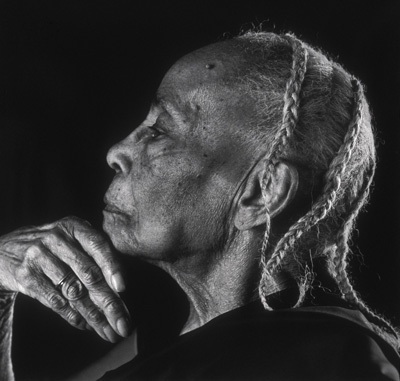
Septima Clark: Teacher To A Movement
By J. Douglas Allen-Taylor
Rosa
Parks, who has been called the Mother of the Civil Rights Movement, well remembers
the first time she met Septima Clark.
It was at a civil rights workshop in Tennessee in the summer of 1955.
African-Americans and sympathetic whites had begun to meet quietly, secretly, throughout
the South to plan their counterattacks against the segregation system, and to train
the new corps of volunteers for that fight. These volunteers would come to be called
civil rights workers. Septima Clark, already a 30-year veteran of her people's struggle,
was one of the trainers.
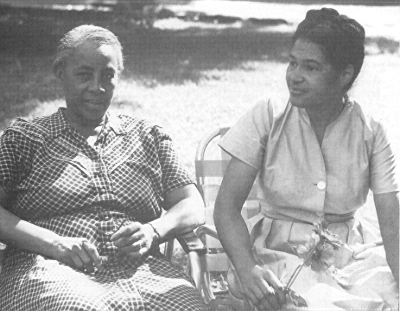
"At that time I was very nervous, very troubled in my mind about the events
that were occurring in Montgomery," Rosa Parks says. "But then I had the
chance to work with Septima. She was such a calm and dedicated person in the midst
of all that danger. I thought, 'If I could only catch some of her spirit.' I wanted
to have the courage to accomplish the kinds of things that she had been doing for
years." After the sessions with Clark, Parks returned to Montgomery saying she
had a firmness and self-confidence she had not felt before. Three months later she
refused to give up her seat on a bus so that a white person could sit down, the act
which marks the beginning of the modern civil rights movement
Septima Poinsette Clark had that type of inspirational effect on most of those whom
she taught; many of Septima Clark's students had that type of effect on the rest
of the world.
She was born in Charleston, South Carolina, in 1898, and until the end of her life
you could tell it from her accent; never loud...always patient and firm. Single mother,
public school teacher, quietly devout Christian, she began organizing anti-racist
activities in the Deep South in the 1920's. She stuck through the Movement in its
most difficult moments: dark nights of fear on lonely back highways...the bombing
and burning of churches and meeting halls...the beatings and murders of friends and
co-workers. She volunteered to work in the most dangerous spots, surviving jail and
two heart attacks in the process. And she lived to witness the Movement's greatest
triumphs: the end of segregated public facilities...the passage of the great civil
rights legislation of the 1960's...the election of African-American public officials
in the South for the first time in a hundred years.
Shortly before she sent Rosa Parks back to Montgomery and into the history books,
Septima had been fired from her job with the South Carolina public schools when she
refused to quit the local chapter of the NAACP. She had been an NAACP member since
1919, almost from the date of its inception.
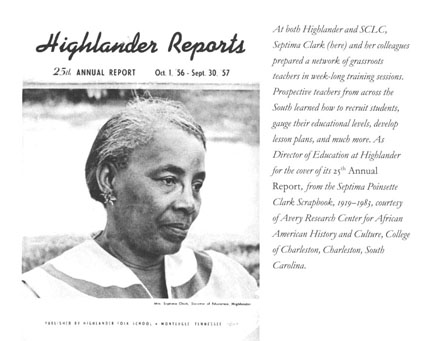 At the age of 58 and following 40 years as a public school teacher, the thought of
retirement simply never seems to have entered her mind. She took a job as Director
of Education at the Highlander Center in Tennessee, which had long been active in
the Southern struggles for unionization and racial equality. The Center was often
accused by Southern segregationists of being run by Communists.
At the age of 58 and following 40 years as a public school teacher, the thought of
retirement simply never seems to have entered her mind. She took a job as Director
of Education at the Highlander Center in Tennessee, which had long been active in
the Southern struggles for unionization and racial equality. The Center was often
accused by Southern segregationists of being run by Communists.
Septima discounted the red-baiting, saying "that was the general feeling you
got in those days whenever the races mixed." Still, becoming a full-time civil
rights worker was an immense leap in the dark for her. "For three long months
I couldn't sleep," she recalled about the period following her arrival at Highlander.
"Then at the end of that time it seemed to me as if my mind cleared up, and
I decided then that I must have been right."
Since the end of the Civil War, the states of the Old Confederacy had sunk in their
teeth and sucked at the life of their former slaves while the nation turned its back
and looked the other way. And when these African-American citizens got tired of their
condition and said they'd had enough, the violence broke upon them like sheets of
summer rain. They lost their jobs. They were beaten. They were jailed. Their houses
were firebombed. They were dragged from their homes in the silent screaming of the
night by ghostly men in flowing robes and hung from trees and burned, their body
parts sliced off and passed around the crowd to be put on mantelpieces in pickle
jars as souvenirs. Violence, and the threat of violence, had kept the Black South
in check for a hundred years. But by the end of the 1950's, in shanty-town villages
and cross-the-track communities throughout the South, intimidation was no longer
working. The spirit of Freedom was rising, and many were catching it.
An army of civil rights workers spread out across South, sitting in at lunch counters,
marching in the face of police dogs and riot sticks, registering the disenfranchised.
They were volatile, volcanic meteors that streaked across the Southern skies and
changed a way of life forever. Some saw their contribution in thundering, inspirational
speeches...some were quiet pilgrims making witness to their faiths in jail cells.
Septima, the lifelong teacher, figured she'd set up a few schools to show her people
how to take advantage of the new rights that were being opened up to them.
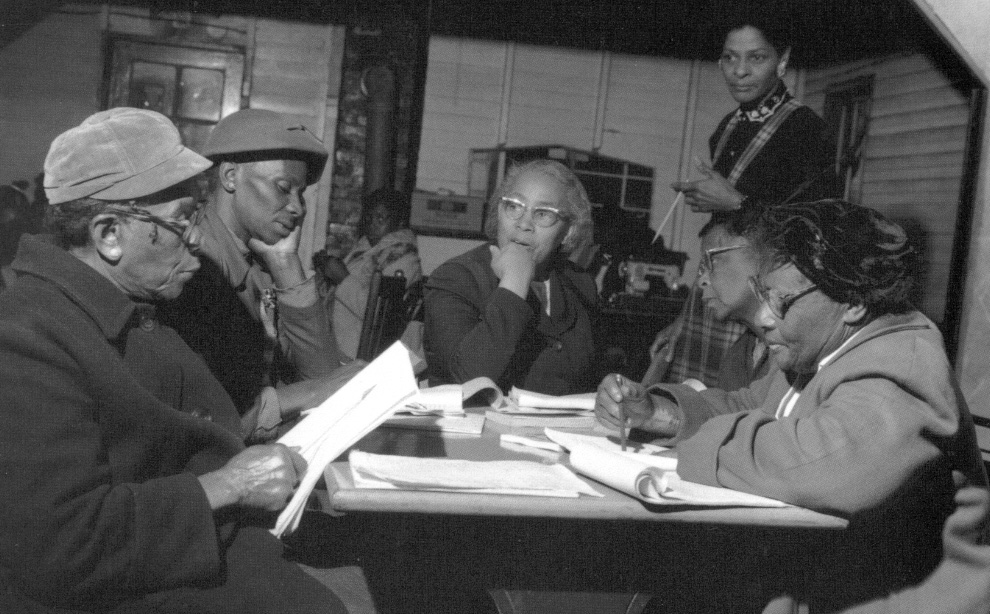
"I just tried to create a little chaos," Septima said, explaining her role.
"Chaos is a good thing. God created the whole world out of it. Change is what
comes of it."
One area that needed changing most was the area of voting rights for African-Americans
in the South. Legally, Black Southerners had the right to vote. However, most were
kept from the polls by the various state "literacy tests." Prospective
voters were asked to read and then "interpret" a section of the state or
national constitutions. The products of inferior, segregated school systems, many
adult Blacks could barely read or write their own names. Most did not even bother
to try to register.
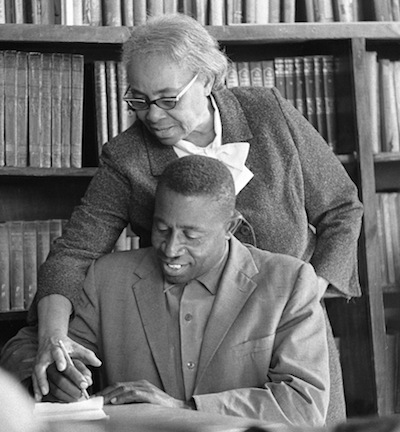 First through the Highlander Center and later through Martin Luther King's Southern
Christian Leadership Conference, Septima organized a series of citizenship schools
across the South to train local leaders in such skills as how to teach reading and
writing and how to pass the literacy tests. The results were revolutionary.
First through the Highlander Center and later through Martin Luther King's Southern
Christian Leadership Conference, Septima organized a series of citizenship schools
across the South to train local leaders in such skills as how to teach reading and
writing and how to pass the literacy tests. The results were revolutionary.
"One of the fellows we were teaching in Alabama went up to the bank in his little
home town to cash a check," Septima said. "The white man took out his pen
and said, 'I'll make the X.' And the Black fellow said, 'You don't have to make the
X for me, because I can write my own name.' The white guy says, 'My God, them niggers
done learned to write!'
"At the time, people thought I had new-fangled ideas, but I guess those new-fangled
ideas worked out, didn't they?"
Spectacularly so. The Citizenship School Movement trained
more than 10,000 community leaders from 1957 to 1970 through nearly 1,000 grassroots,
independent schools that operated at one time or another in every county in South
Carolina, nearly 90 counties in Georgia, and in all of the heavily-Black areas of
the rest of the Deep South. At one point in 1964, almost 200 schools operated simultaneously.
Former Atlanta Mayor Andrew Young, who served as Septima's supervisor at SCLC, said
that the Citizenship Schools were the "foundation" of the civil rights
movement, "as much responsible for transforming the South as anything anybody
did.
It was a transformation of fire and blood. Several of Septima's friends, colleagues
and students were beaten or murdered during the course of the struggle. Police rode
down on demonstrators with horses or attacked them with dogs and fire hoses. In the
most dangerous towns, civil rights workers had to spend each night in a different
home in order to stay alive. Septima herself was arrested in a frightening, nighttime
police raid on Highlander. The civil rights center was padlocked by local officials
and later set on fire by a mob.
Septima confessed that the attacks angered her and tested her commitment to Christian
forgiveness and King's nonviolent philosophy. Once, after policemen clubbed a group
of her friends in Mississippi, she said "I knew that I couldn't beat those men,
but I wished that a chandelier would drop on their heads.".
That fighting spirit came directly from her mother, a fiery and strong-willed Haitian.
Victoria Anderson Poinsette was fiercely proud of the fact that she had never been
a slave although she was brought up in slavery time. She was a strict disciplinarian
who left her daughter with a legacy of straightforwardness and courage. Septima talked
of her mother facing down a white policeman near the turn of the century, shouting
from her porch, "I'm a little piece of leather but well put together, so watch
out!"
"I learned from my mother not to be afraid," Septima once said. She traveled
to the most violent sections of the South, often with only one or two companions,
calm in the face of the fury, the danger never deterring her.
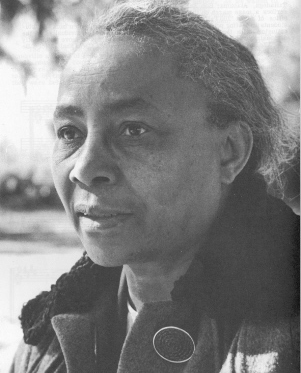 But fearlessness and anger did not mix in her. "I never felt that getting angry
would do you any good other than hurt your own digestion," she explained. "It
kept you from eating, which I liked to do." She argued passionately with student
leaders such as Stokely Carmichael that they resist the natural urge to retaliate
against the racists.
But fearlessness and anger did not mix in her. "I never felt that getting angry
would do you any good other than hurt your own digestion," she explained. "It
kept you from eating, which I liked to do." She argued passionately with student
leaders such as Stokely Carmichael that they resist the natural urge to retaliate
against the racists.
Her work brought her in contact with Dorothy Cotton, now Director of Student Affairs
at Cornell University, who taught in the Citizenship Schools and served as a fellow
staff member with Septima at SCLC. Cotton said that Septima had the effect of changing
people's lives from the instant they first met her.
"The first time Septima saw me she sat down to drink a cup of tea with me; she
wanted to know who I was, where I was from. At the time I was just an unknown; somebody
who was attending one of her workshops. But just by talking, she made me feel important.
She did that with everybody she met, and she met thousands and thousands of people
during the Movement."
Cotton said one of her strongest memories of Septima was someone who had great patience
with the people of the various towns and rural areas who were being.
"I was almost ready to close out a workshop at Highlander one time when an elderly
man got up to leave. I tried to stop him because I wanted everyone to hear everything
that I had to talk about. But he insisted, and finally he just ignored me and left.
Afterwards, Septima gave me a little lecture, which she entitled 'when you got to
go, you got to go.' That's when I found out the man had to use the bathroom and just
couldn't wait." Cotton laughed. "Sometimes we got caught up in what we
were doing, but Septima never lost sight of the fact that people had everyday, human
needs that had to be satisfied, even in the midst of these great changes that were
taking place."
 The patience was learned from Septima's father, a gentle man conceived in Africa
and born into slavery in Charleston. Peter Poinsette was never embittered by the
brutality and injustices he endured in slavery, and felt until the end of his life
that service to others was the world's highest calling. Septima recalled learning
three major things while sitting around the family's pot-belly stove and listening
to her father's quiet sermons about "being truthful, strengthening other people's
weaknesses, and seeing that there is something fine and noble in everybody."
The patience was learned from Septima's father, a gentle man conceived in Africa
and born into slavery in Charleston. Peter Poinsette was never embittered by the
brutality and injustices he endured in slavery, and felt until the end of his life
that service to others was the world's highest calling. Septima recalled learning
three major things while sitting around the family's pot-belly stove and listening
to her father's quiet sermons about "being truthful, strengthening other people's
weaknesses, and seeing that there is something fine and noble in everybody."
Another of Septima's students was Bernice Johnson Reagon, then a leader of the Student
Nonviolent Coordinating Committee, now a curator with the Smithsonian Institute,
and founder of and singer with the ground-breaking Sweet Honey in the Rock.
Reagon attended the first SCLC-sponsored Citizenship School and taught in the program
for ten years. She recalls that Septima had a deep and powerful influence on the
student activists who flooded the South during the civil rights years. Many of them
had dropped out of college in open defiance of their parents and were suddenly thrust
into violent, life-threatening situations.
"[Listening to Septima] was like having your grandmother tell you that it's
allright for you to think for yourself," Reagon said. "She would really talk to us about the things we were thinking about and worrying about; She
made us understand that we were part of and older, deeper struggle. She kept a lot
of people from going crazy.
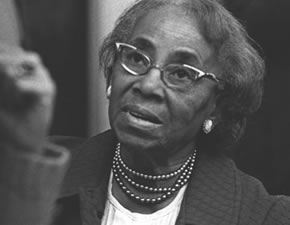 "I remember her explaining about birth control," Reagon said. "In
the 60's, this was something which just wasn't talked about by older women to younger
women. She told us that she had originally been against any kind of birth control
except abstinence. But through the years she saw so many Black women get sick and
die from having too many children too close together, and so many Black children
neglected and uncared for, and that changed her mind. She always kept her principles,
but she was able to change and grow. That's one of the things that made her special."
"I remember her explaining about birth control," Reagon said. "In
the 60's, this was something which just wasn't talked about by older women to younger
women. She told us that she had originally been against any kind of birth control
except abstinence. But through the years she saw so many Black women get sick and
die from having too many children too close together, and so many Black children
neglected and uncared for, and that changed her mind. She always kept her principles,
but she was able to change and grow. That's one of the things that made her special."
Septima's patience, however, did not extend to those who disrespected the common
people whose lives she was working so hard to change. When that happened, she was
quick to let her feelings be known ("That look!" says SCLC veteran
Rev. C.T. Vivian, cocking his head to one side and folding his arms over his chest
to mimic Septima's posture. "Oh my, you didn't want her to give you that look!")..
"We had a white social worker who came to work with us, feeling that these poverty-stricken
people coming out of Alabama and Mississippi were just so far beneath her,"
Septima once explained. "One time she missed her regular plane and chartered
a plane for herself to come to a workshop, but she didn't send any money for the
little people attending. And there they came, all the way from Mississippi, starving."
Septima went on to say that "[the social worker] and I argued about that quite
a bit," and added drily that, "she didn't stay long."
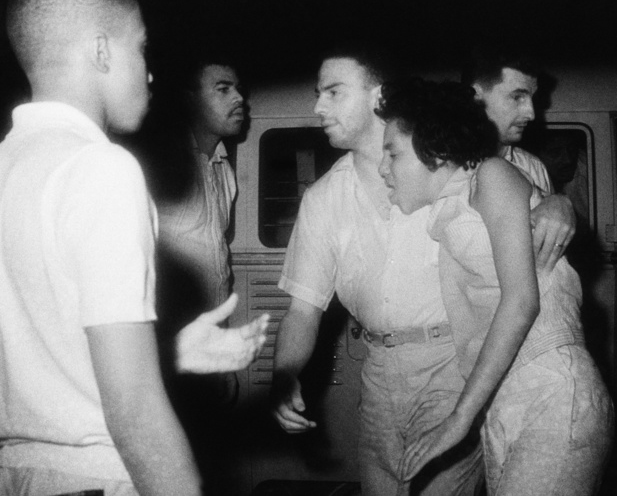 Another time Septima described a South Carolina workshop where Andrew Young and Dorothy
Cotton led a group in the Movement standard "We Shall Overcome." While
Young and Cotton closed their eyes and rocked with the spirit of the song, Septima
noticed a young woman in the back of the room, trembling and crying and refusing
to join in. The woman later explained that she'd been jailed and tortured with cattle
prods during a Georgia demonstration, and couldn't bring herself to sing the stanza
"I love everybody."
Another time Septima described a South Carolina workshop where Andrew Young and Dorothy
Cotton led a group in the Movement standard "We Shall Overcome." While
Young and Cotton closed their eyes and rocked with the spirit of the song, Septima
noticed a young woman in the back of the room, trembling and crying and refusing
to join in. The woman later explained that she'd been jailed and tortured with cattle
prods during a Georgia demonstration, and couldn't bring herself to sing the stanza
"I love everybody."
"I told Andy and Dorothy, 'You can't sing with your eyes closed. You've got
to open your eyes and see what's happening to these people.' Andy and I had some
words about that but he learned, and he grew."
Young came quickly to love Septima for her forthrightness, but many of SCLC's other
ministers resented her informal lectures. They gave her the titles of "SCLC's
Mother Conscience" and later "Queen Mother of the Movement," but they
allowed her no power. Rev. Ralph Abernathy, second in command during the King years,
tried to keep Septima out of SCLC's executive committee meetings, and SCLC's prolific
publicity machine rarely gave the Citizenship School work its proper credit. Cotton
recalls the snickerings she received from the ministers when she told a staff meeting
that the Citizenship Schools were SCLC's most important program. Many of the preachers
who made up SCLC's ruling corps were used to women taking a back seat in their churches
and in their homes, and they did not look lightly on a woman taking a leadership
role in their organization. They refused to give Septima the recognition she deserved.
Septima later wrote that the men on SCLC's executive staff "didn't listen to
me too well. They liked to send me into many places, because I could always make
a path in to get people to listen to what I have to say. But those men didn't have
any faith in women, none whatsoever. They just thought that women were sex symbols
and had no contribution to make."
In her last years she became an active feminist and came to understand that she and
other Movement women had been the victims of sexism. "If you watch the movie
'From Montgomery to Memphis,' you'll notice that they don't mention one woman going
through there. Not one. You almost never see their role put down in any of the reports
about the Movement. You just get 'Dr. so-and-so from Alabama State College did such-and-such.'"
She called sexism "one of the weaknesses of the civil rights movement."
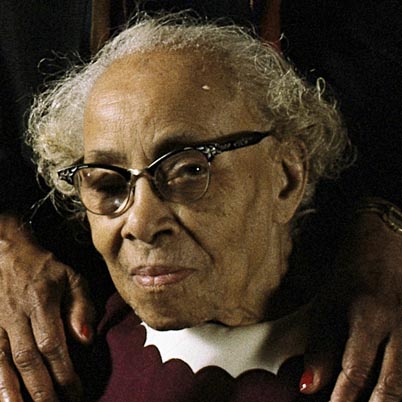 Still, by strength of will, she endured. Long after the decline of the Movement after
King's assassination Septima continued, organizing day care centers for low-income
mothers, speaking and writing in behalf of women's rights, criss-crossing the country
to share her great knowledge and deep social concerns with anyone who would listen.
In the end, the flame that fueled her passion for human rights and equality of justice
never dimmed or wavered...one day, it simply went out. She passed away in December
of 1987 at the age of 89.
Still, by strength of will, she endured. Long after the decline of the Movement after
King's assassination Septima continued, organizing day care centers for low-income
mothers, speaking and writing in behalf of women's rights, criss-crossing the country
to share her great knowledge and deep social concerns with anyone who would listen.
In the end, the flame that fueled her passion for human rights and equality of justice
never dimmed or wavered...one day, it simply went out. She passed away in December
of 1987 at the age of 89.
In the last years of her life she enjoyed setting up camp on her front porch, stuffing
visitors with Southern cooking and entertaining them with her long repertoire of
stories.
She described sitting drenched and shivering in the bow of a boat headed toward the
islands off the coast of South Carolina--years before the first bridges were built--wrapping
her feet with towels to walk miles in the frozen mud to teach in a one-room school.
She spoke of the days she rode South Carolina's two-lane highways at a time when
no public restrooms were available for Black travelers. Grandmother and public school
teacher, the only way she could relieve herself was by squatting in the bushes on
the side of the road.
She would recall two elderly Black men in a lively argument
over which one could make the prettiest "x" while signing his name. She
remembered an incident when Dr. King stood in the middle of a packed meeting, dropping
his hands to his side, making no effort to resist while a white man beat him again
and again and again in the face and the audience looked on in horror. There were
Black sharecroppers and maids trooping to the courthouse to register to vote for
the first time in their lives, and pot-bellied white farmers in dark overalls spitting
tobacco juice out of the sides of their mouths and marveling at it all. Firebombed
churches crackled in the night--the flames leaping and licking at heaven--civil rights
workers tumbling frantically out into the street just in time to escape the inferno.
She talked of wild rides on rolling, one-lane blacktop roads chased by strange, angry
men in pickup trucks, sometimes the good guys just getting away. Sometimes not.
In 1975, she summed up her philosophy of work in one of the specially-printed Christmas
cards she regularly sent out to hundreds of friends. "The greatest evil in our
country today is not racism, but ignorance," she wrote. "I believe unconditionally
in the ability of people to respond when they are told the truth. We need to be taught
to study rather than to believe, to inquire rather than to affirm."
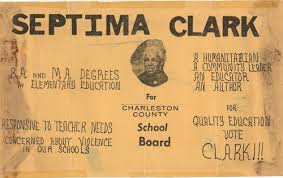
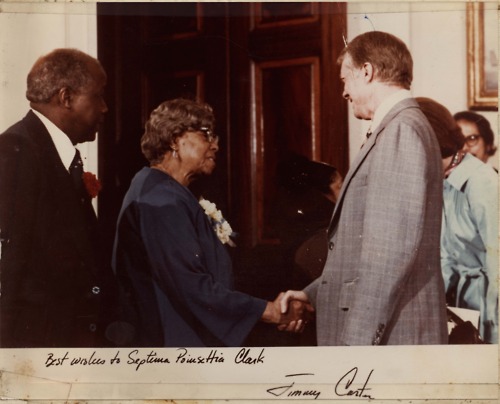
She left a long string of honors and accomplishments: several honorary degrees, a
major book on the Martin Luther King Jr. era dedicated to her ( Parting The Waters by Taylor Branch), and two autobiographies of her own (Echo In My Soul, now out of print, and Ready From Within, Wild Tree Pres), recipient
of the Presidential Living Legacy Award, a Septima Clark Expressway and a Septima
Clark Day Care Center in her native Charleston. In the great irony of her life, she
ended up serving two terms on the same Charleston County School Board that had once
fired her.
But Septima Clark's greatest legacy was in the memories she left with those who worked
with her.
"I never saw her pass by someone who wanted to speak with her," said Rosa
Parks. "She was always in the right place if you needed someone to talk to.
I benefited a great deal by knowing her."
As did we all.
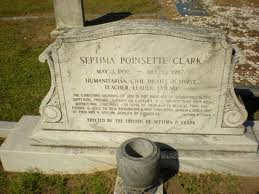
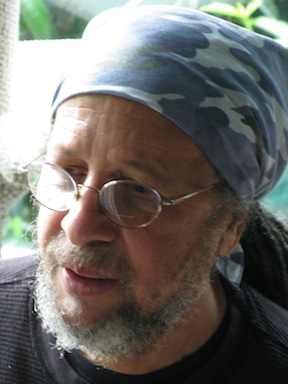

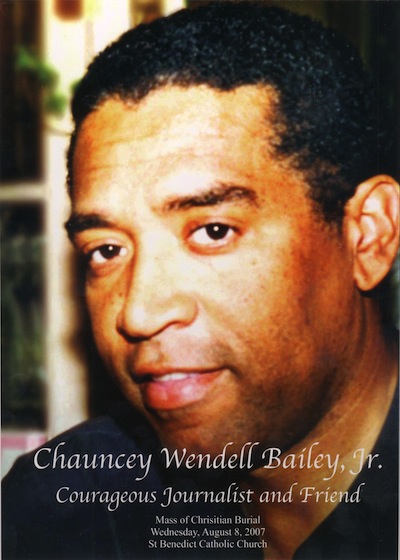
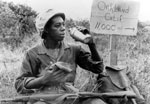
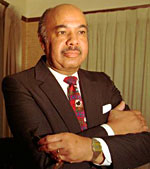

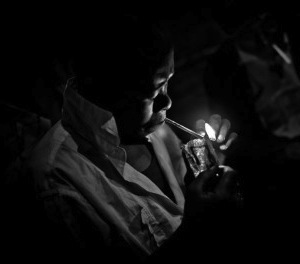


 At the age of 58 and following 40 years as a public school teacher, the thought of
retirement simply never seems to have entered her mind. She took a job as Director
of Education at the Highlander Center in Tennessee, which had long been active in
the Southern struggles for unionization and racial equality. The Center was often
accused by Southern segregationists of being run by Communists.
At the age of 58 and following 40 years as a public school teacher, the thought of
retirement simply never seems to have entered her mind. She took a job as Director
of Education at the Highlander Center in Tennessee, which had long been active in
the Southern struggles for unionization and racial equality. The Center was often
accused by Southern segregationists of being run by Communists.
 First through the Highlander Center and later through Martin Luther King's Southern
Christian Leadership Conference, Septima organized a series of citizenship schools
across the South to train local leaders in such skills as how to teach reading and
writing and how to pass the literacy tests. The results were revolutionary.
First through the Highlander Center and later through Martin Luther King's Southern
Christian Leadership Conference, Septima organized a series of citizenship schools
across the South to train local leaders in such skills as how to teach reading and
writing and how to pass the literacy tests. The results were revolutionary. But fearlessness and anger did not mix in her. "I never felt that getting angry
would do you any good other than hurt your own digestion," she explained. "It
kept you from eating, which I liked to do." She argued passionately with student
leaders such as Stokely Carmichael that they resist the natural urge to retaliate
against the racists.
But fearlessness and anger did not mix in her. "I never felt that getting angry
would do you any good other than hurt your own digestion," she explained. "It
kept you from eating, which I liked to do." She argued passionately with student
leaders such as Stokely Carmichael that they resist the natural urge to retaliate
against the racists. The patience was learned from Septima's father, a gentle man conceived in Africa
and born into slavery in Charleston. Peter Poinsette was never embittered by the
brutality and injustices he endured in slavery, and felt until the end of his life
that service to others was the world's highest calling. Septima recalled learning
three major things while sitting around the family's pot-belly stove and listening
to her father's quiet sermons about "being truthful, strengthening other people's
weaknesses, and seeing that there is something fine and noble in everybody."
The patience was learned from Septima's father, a gentle man conceived in Africa
and born into slavery in Charleston. Peter Poinsette was never embittered by the
brutality and injustices he endured in slavery, and felt until the end of his life
that service to others was the world's highest calling. Septima recalled learning
three major things while sitting around the family's pot-belly stove and listening
to her father's quiet sermons about "being truthful, strengthening other people's
weaknesses, and seeing that there is something fine and noble in everybody." "I remember her explaining about birth control," Reagon said. "In
the 60's, this was something which just wasn't talked about by older women to younger
women. She told us that she had originally been against any kind of birth control
except abstinence. But through the years she saw so many Black women get sick and
die from having too many children too close together, and so many Black children
neglected and uncared for, and that changed her mind. She always kept her principles,
but she was able to change and grow. That's one of the things that made her special."
"I remember her explaining about birth control," Reagon said. "In
the 60's, this was something which just wasn't talked about by older women to younger
women. She told us that she had originally been against any kind of birth control
except abstinence. But through the years she saw so many Black women get sick and
die from having too many children too close together, and so many Black children
neglected and uncared for, and that changed her mind. She always kept her principles,
but she was able to change and grow. That's one of the things that made her special." Another time Septima described a South Carolina workshop where Andrew Young and Dorothy
Cotton led a group in the Movement standard "We Shall Overcome." While
Young and Cotton closed their eyes and rocked with the spirit of the song, Septima
noticed a young woman in the back of the room, trembling and crying and refusing
to join in. The woman later explained that she'd been jailed and tortured with cattle
prods during a Georgia demonstration, and couldn't bring herself to sing the stanza
"I love everybody."
Another time Septima described a South Carolina workshop where Andrew Young and Dorothy
Cotton led a group in the Movement standard "We Shall Overcome." While
Young and Cotton closed their eyes and rocked with the spirit of the song, Septima
noticed a young woman in the back of the room, trembling and crying and refusing
to join in. The woman later explained that she'd been jailed and tortured with cattle
prods during a Georgia demonstration, and couldn't bring herself to sing the stanza
"I love everybody." Still, by strength of will, she endured. Long after the decline of the Movement after
King's assassination Septima continued, organizing day care centers for low-income
mothers, speaking and writing in behalf of women's rights, criss-crossing the country
to share her great knowledge and deep social concerns with anyone who would listen.
In the end, the flame that fueled her passion for human rights and equality of justice
never dimmed or wavered...one day, it simply went out. She passed away in December
of 1987 at the age of 89.
Still, by strength of will, she endured. Long after the decline of the Movement after
King's assassination Septima continued, organizing day care centers for low-income
mothers, speaking and writing in behalf of women's rights, criss-crossing the country
to share her great knowledge and deep social concerns with anyone who would listen.
In the end, the flame that fueled her passion for human rights and equality of justice
never dimmed or wavered...one day, it simply went out. She passed away in December
of 1987 at the age of 89.

